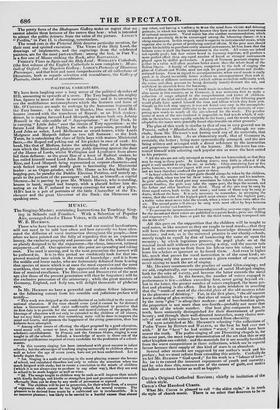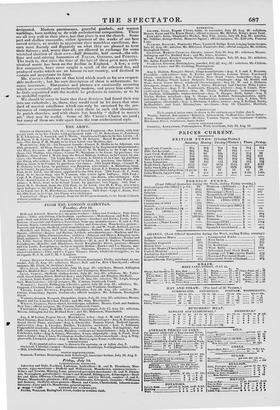CRUSE'S Original Cathedral Services; chiefly in imitation of the
olden style.
CRUAI'S One Hundred Chants. What Mr. CRUSE is pleased to call "the olden style," is in truth the style of church music. There is no other that deserves to be se designated. Modern prettinesses, graceful gambols, and wanton warblings, have nothing to do with ecclesiastical composition. These are all very well in their place, but that place is not the church. Some pert and shallow coxcombs, either ignorant of the works of our best sacred writers, or unable to appreciate their matchless excellence, des- cant most fluently and flippantly on what they are pleased to term their dulness; and, worse than all, are allowed to exchange for some wretched abortion of their own—half dramatic, half sacred—the sub- lime and soul-stirring harmonies of TALUS, GIBBONS, and PURCELL. The truth is, that since the time of the last of these great men, eccle- siastical music has been on the decline in England. A few, a very few composers, have since caught a spark of the ethereal fire, and produced works which are an honour to our country, and destined to sustain and perpetuate its fame. Mr. ClUISE'S efforts are of that kind which reach as far as a respect- able mediocrity ; but his own description of them is unfortunate, be- cause inaccurate. Harmonies and phrases are continually occurring which arc essentially and exclusively modern, and prove him either to be little acquainted with the models he professes to imitate, or to be • a an unskilful copyist.
We should be sorry to learn that these Services had found their way into our cathedrals ; as, there, they would tend to let down that stan- dard of musical excellence which can only be sustained by the per- formance of compositions which exist there in such rich abundance. In parish churches, and with choirs but humbly " skilled in music's art," they may be useful. Some of Mr. CR1.18E's Chants are good; but many of them are wide apart from the true ecclesiastical style.



























 Previous page
Previous page